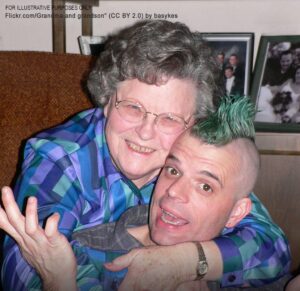The office was silent except for the ticking of the clock on the wall. Mark and Peter, still reeling from their mother’s recent death, sat in the lawyer’s waiting room. Their mother, Ruth, had passed away three weeks ago, and the brothers had been waiting anxiously for news about her will. The delay in communication from the lawyer had only fueled their frustration. Mark broke the silence, “Don’t you think it’s strange that Mom’s lawyer never called us after her death?”
Peter, his younger brother, nodded in agreement. “It does seem unprofessional. We’ve had no word from him until now.” Their anxiety was palpable as they anticipated what the lawyer might reveal about their mother’s estate. As the receptionist called them in, the brothers exchanged a glance of both relief and apprehension.
Entering the lawyer’s office, they were greeted with a warm yet solemn smile. “Please, have a seat,” the lawyer said, motioning to the chairs across his desk. The brothers settled in, their eyes scanning the room, trying to gauge the mood.
“Why the delay in contacting us?” Mark asked, his voice tinged with irritation. “Did you think we weren’t interested in handling her affairs?”
The lawyer’s expression softened. “It’s not what you think,” he said as he pulled a file from his desk drawer. “Your mother anticipated you’d have many questions, and she left a letter for you both.”
Mark’s frustration was momentarily replaced with curiosity as the lawyer handed them a sealed envelope marked “For my sons.” Mark’s face paled as he opened the envelope and began reading aloud. The letter read:
“Dear sons,
If you are reading this letter, you are likely sitting in the lawyer’s office, awaiting details of my will. I am writing to you not only as your mother but as a final attempt to impart a lesson. Over the years, I have been deeply hurt by your actions and attitudes. I have tried to teach you about compassion, but I fear I have failed. I have seen how my calls for your company were met with irritation and how my presence became a burden to you. Your father’s passing left a void that you never seemed willing to fill, and now, it is clear to me that the upbringing I provided did not instill the values of empathy and respect I hoped for.
I have decided not to leave my house to either of you. Instead, I have sold it for a mere dollar to a young woman named Samantha, who works at the nursing home where I will be spending my final days. Samantha has no family of her own and has shown me kindness and warmth that you have not. I hope this gesture teaches you both the value of caring for others and the importance of compassion.

With love,
Ruth.”
Mark’s disbelief was evident. “One dollar? This can’t be real!”
The lawyer nodded. “Your mother’s decision was deliberate. She wanted to make sure the house went to someone who would appreciate it for more than its material value.”
Peter’s face flushed with a mix of anger and regret. “So she gave the house away because of us?”
“Yes,” the lawyer confirmed. “She felt that you both needed to understand the gravity of your actions. Her decision was not just about the property but about making a statement.”
As the brothers sat in stunned silence, memories of their recent behavior towards their mother replayed in their minds. A few months before her death, they had treated her call for help as an inconvenience. Instead of visiting her out of genuine concern, they had come up with a plan to avoid her frequent pleas. They abandoned her at a nursing home, believing it was the easiest solution.
Ruth’s final act had not only deprived them of an inheritance but also served as a painful reminder of their failures. The brothers left the lawyer’s office, their drive home filled with an oppressive silence. Each man grappled with his own feelings of guilt and sorrow, recognizing that their actions had led to an irreversible loss.
In the end, Ruth’s decision became a poignant lesson for her sons—a lesson about the importance of family, respect, and the impact of their actions. It was a final gift from a mother who sought to teach her children something far more valuable than material wealth.





